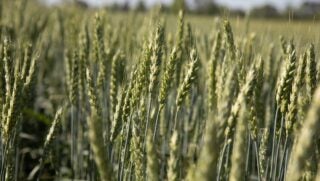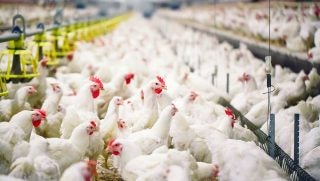New. Advanced. Innovative. These words describe the most recent Bayer initiative, which was discussed during a call Tuesday. Now with the Monsanto transaction complete, Bayer is better positioned than ever and has a particularly strong research portfolio, putting them in a very comfortable spot in the agribusiness market. They could easily let this go to their head. Instead, they aim to continue pushing forward while creating more tools for farmers — big and small. Not to play down the current legal issues, but as far as innovation goes, Bayer is looking forward to what the future holds.
After the merger, many farmers were waiting to see what type of technologies Bayer would release to support yields and the environment. The Climate Corporation, a subsidiary of Bayer, announced strong harvest results for farmers using Seed Advisor — its new predictive seed selection and placement technology for corn. In addition to Seed Advisor, Climate accelerated 25 innovation advancements in 2018 through its global, digital farming pipeline to provide farmers more data-driven insights to sustainably improve productivity.
Announced this fall, Seed Advisor gives seed dealers a predictive model that combines the industry’s largest, proprietary seed genetics library with regional seed performance data to help predict the best-performing hybrids for each of a farmer’s fields. As part of Climate’s rigorous process for bringing new digital solutions to market, the tool was field tested by a group of farmers and their dealers through the company’s FieldView Innovators program across 100,000 U.S. corn acres in Iowa, Illinois, and Minnesota during the 2018 growing season. Harvest results demonstrated an average yield advantage of 9.1 bushels per acre versus what the farmer would have planted without Seed Advisor recommendations, with a more than 80 percent win rate.
R&D Innovation Highlights
Seed Advisor 2.0
In addition to expanding the pre-commercial test of Seed Advisor in 2019 to more farmers in Iowa, Illinois, and Minnesota, Climate is also growing its seed selection and placement research to include Wisconsin, Indiana, and Missouri. Predictive seed research is also underway in soybeans. An official launch of Seed Advisor is targeted for fall 2019 in the U.S., pending harvest results.
Disease Risk & Disease Identification
Climate is driving towards an integrated, data-driven solution to help farmers protect their crops before yield is impacted. Climate’s disease identification research has added 15 corn and soybean diseases to its portfolio and is expanding into wheat, cotton and specialty crops. Climate has also made significant progress in predicting disease risk in fields before emergence through its advanced disease risk model.
Built on three years of in-field observations, the model forecasted the occurrence of disease more than 80 percent of the time in 2018, and can differentiate mild, moderate, and severe outcomes. Climate’s disease risk model is also helping farmers identify fields that have the highest likelihood of positive return on investment for an application of fungicide. Expanded field testing with farmers for disease identification and disease risk is planned for the 2019 growing season.
Fertility Scripting
With fertility prescriptions in FieldView, farmers and their agronomic partners can work together to sustainably optimize productivity through improved timing and rates of nutrient inputs. By capturing key processes that impact nitrogen levels in the field, Climate is currently testing and validating models that identify areas that would benefit from variable rate nitrogen applications. The company is continuing to invest globally to expand research on fertility prescriptions for additional crops, including soybeans, canola, and wheat in parts of the U.S., Brazil, and Argentina.
The Climate Corporation’s mission is to help all the world’s farmers sustainably increase their productivity through the use of digital tools. First launched in the United States in 2015, the company’s Climate FieldView platform gives farmers a deeper understanding of their fields so they can make more informed operating decisions to optimize yields, maximize efficiency and reduce risk. FieldView is currently on more than 60 million paid acres across the United States, Canada, Brazil and Europe. It has quickly become the most broadly connected platform in the industry and will continue to expand into other global regions over the next few years. For more information, visit climate.com.
With technologies constantly on the horizon, Bayer is also looking for new ways to reduce the carbon footprint of farmers. With the use of outside experts, Bayer is hoping to one day become carbon neutral through different farming practices. In addition, Bayer is on the cusp of the next “green revolution” — short stature corn. In hopes to becoming less susceptible to green snap, farmers would have the added bonus of access to the field with equipment instead of the use of agricultural air crafts. But don’t call off the pilot just yet, the new seed is a few more years away from making its debut on the market.


